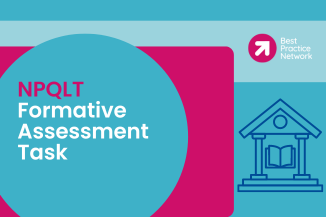
Developing teacher skills in addressing pupil misconceptions
Question
Identify a common misconception that pupils frequently make in your subject. In choosing the misconception, try to identify one that plays a critical role in pupils’ further learning and understanding; most importantly, you must be able to explain why you regard this misconception as critical/fundamental to pupil learning.
Strategies to help pupils avoid the misconception that ‘All Electricity is made at site of use’.
When gathering information about pupils’ preconceptions of Electricity in order to identify what misconceptions they had, it became clear to me that there is a lack of understanding about ‘where does electricity come from?’ In my school Electricity is taught as a topic in Early Spring of Year 7 and Year 9. Whilst some Year 9s mentioned power plants, they didn’t know much about how they work despite having covered it in Year 7. Some Year 7s thought it was either made in wires or the appliances or in houses ‘the spikey metal thing on the roof gives electricity to the house’. They had some concept of solar panels ‘squares on the roof give extra electricity’. I think the fact that Solar confirms the misconception is another source of confusion. I want to make it clear what a turbine and generator do and explicitly link this to energy stores before later moving on to various renewable and non- renewable energy resources.
I was particularly interested in ‘Guest Post: How to Help Students Overcome Misconceptions –The Learning Scientists’. Bearing in mind Rosenshine’s Principle 2*, because I know Cognitive Overload is a very real issue with the SEN pupils I teach, I want to use the ideas from Annette Taylor to break down the concept.
After gathering information about misconceptions, I initially planned to start by acknowledging them. After reading Annette Taylor’s Guest Post and previous research about memory it makes sense that ‘if you start with the misconception those students who already know and believe it … may stop listening’. And that ‘students’ remember what they heard first’.
In the current Scheme of work both Year 7 and Year 9 start the ‘Energy’ topic with what the energy stores are and looking at real examples to work out transfers. I think this is an important step before addressing this misconception and I will also emphasise the law of conservation of energy at this stage and use Roshenshine’s Principle 1* to recap this at the beginning of the lesson where the misconceptions is to be addressed. This ties in with Annette Taylors first stage of establishing ‘right is right’.
Next will be to show the pupils a simple picture of a generator and explain how it uses magnets and wire to make electricity. Using Rosenshine’s Principle 3*, I will ask questions linked to previous learning about stores and transfers to establish that kinetic energy is being transferred into electrical energy. As well as asking ‘where will the kinetic energy come from’, ‘do people want to spin the generator themselves’? Then establish the idea of a turbine. I will then ask where the turbine could be, where I expect some pupils may mention wind. After addressing that wind turbine could be used at the site but often are further away I will then go back to the misconception and discuss with questions how solar is an exception, but most electricity is generated using a turbine and generator in a power station and then transmitted along wires to where it is going to be used. I will explicitly link each stage in the power station to the relevant energy store using a diagram. I will revisit these concepts in subsequent lessons including Rosenshine’s Principles 1, 2 and 5* allowing time to master concepts before moving on.
*Rosenshine's Principles:
- Begin a lesson with a short review of previous learning
- Present new material in small steps with student practice after each step
- Ask a large number of questions and check the responses of all students
- Provide models
- Guide student practice
- Check for student understanding
- Obtain a high success rate
- Provide scaffolds for difficult taks
- Require and monitor independent practice
- Engage students in weekly and monthly review
Want to know more?
If you would like to know more about NPQs and how they can benefit your teaching career, explore the NPQs we offer or get in touch with one of our friendly advisors using the details below:
Email: npq@bestpracticenet.co.uk
Tel: +44 (0) 117 920 9200 (8.30am-5.30pm, Mon-Fri)


